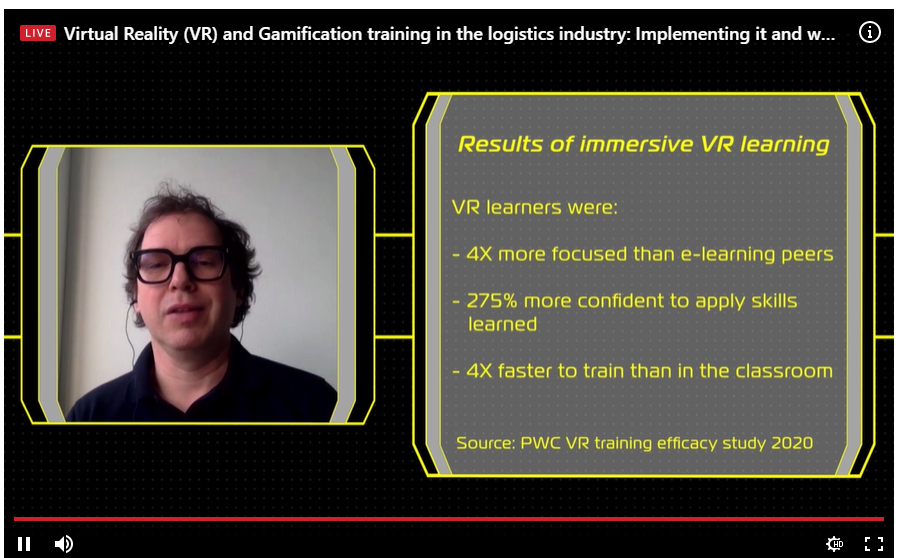Seminar Coverage: Virtual Reality Training Gets Real
Print this Article | Send to Colleague
By Shani Calvo, MHI Solutions
While learning to embrace new technology has always been a challenge, said Moustafa Sharawy, business development at FL-Simulators Inc., virtual reality and gamification training is getting some real attention lately, especially when it comes to dangerous or mundane training. “VR represents the next generation of technology that will affect our daily lives. It is happening now and it is here to stay with us,” said Sharawy during a Friday education session at ProMatDX.
And, he didn’t just want attendees to take his word on that. Not only did he supply a link to a 2020 PwC study on the effectiveness of VR training, he brought in two customers who are actually using it. These customers are getting great results, said Bram Clincke, founder of FL-Simulators Inc. Plus they are able give first-hand advice on two of the most common question surrounding VR training: you want to do it but don’t know how, and what results can you expect?
Kristin Bevens, division vice president at Prologistix, said her company opted to try VR training after hearing about it at ProMat. They were looking for solutions to a labor shortage and different methods they could use train their forklift operators or increase their skills—safely. They did a lot of pilots before fully embracing it, so they could confirm the VR simulation was usable by anyone and was similar enough to a real-world forklift to be beneficial. “We were surprised how accurate it was,” said Bevens. Plus, it didn’t offer any kind of advantages to anyone who didn’t have gaming experience, she added, and it gave them the ability to test someone’s aptitude, even if they had never operated a forklift before.
Aaron Baute of Ivy Tech Community College said it is allowing students to get jobs right out of college. Plus, it “allows us to be immersed in an environment that is very expensive to replicate at the college” and allows for flexibility. Students can gain practice that is as realistic as possible. It makes them better rounded on the people side too, due to interactions that take place in the program. He added that 80% of skills can be achieved in VR and “the instructors love it.”
“It is a tool, not a replacement,” said Bevens, and it is a really safe environment that is inviting. Fear would have prevented a lot of their class attendees from exploring forklift operation, but the VR program allows them to progress at their own speed, and do it safely, she said.
The training even has “sticky” real-world situations built into its programming, such as oil spills, losing control, heavy traffic, a pedestrian coming out of an aisle.
VR training can be used for other areas too, not just forklifts. “We focus on forklifts and logistics, but the results are very similar across the VR learning industry,” said the moderator during the Q&A. There is “3-4X faster learning because of higher engagement and retention of students.”
The results of the 2020 PwC study, The VR Advantage: How virtual reality is redefining soft skills training, deduced that VR learners were four times more focused than e-learning peers, were 275% more confident to apply skills learned and were four times faster to train than in the classroom.

Registered ProMatDX attendees can watch the full video online, April 19 at promatshow.com.

